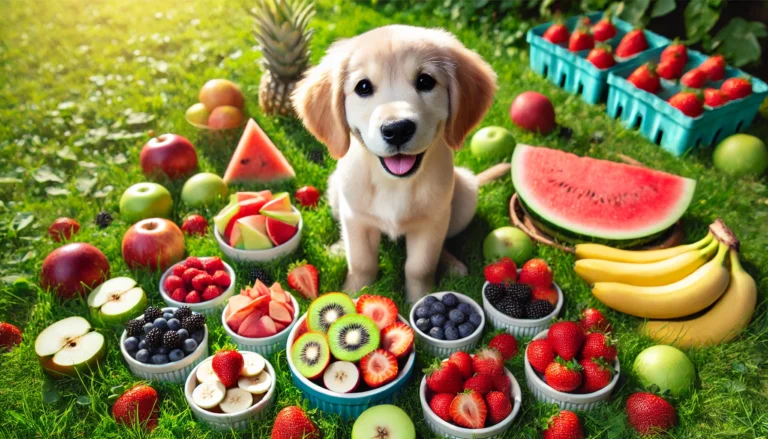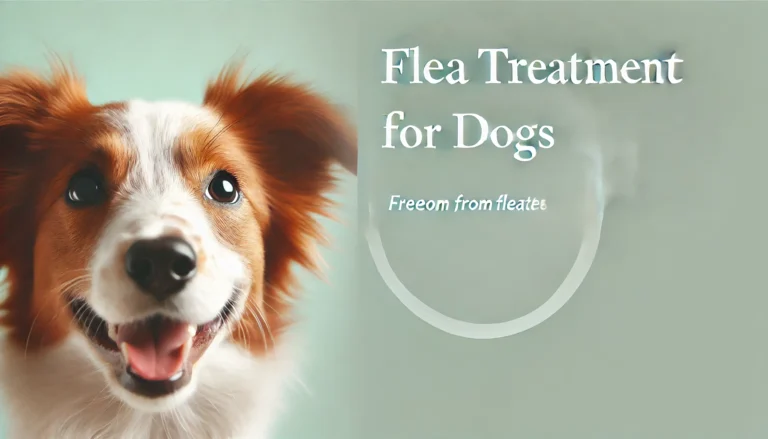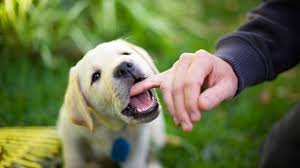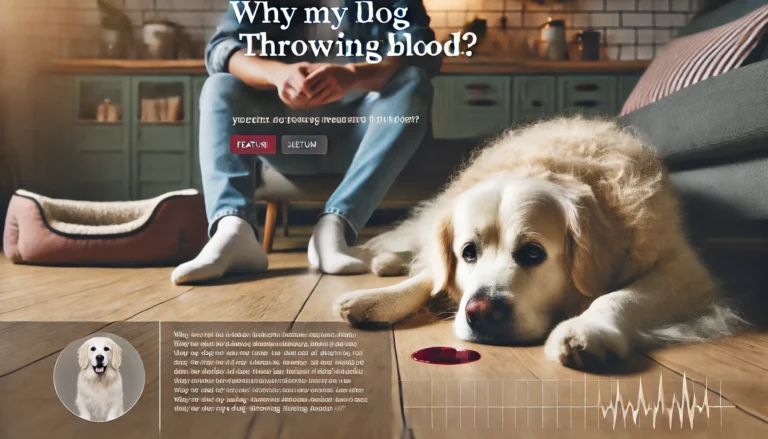Can Dogs Eat Lettuce?
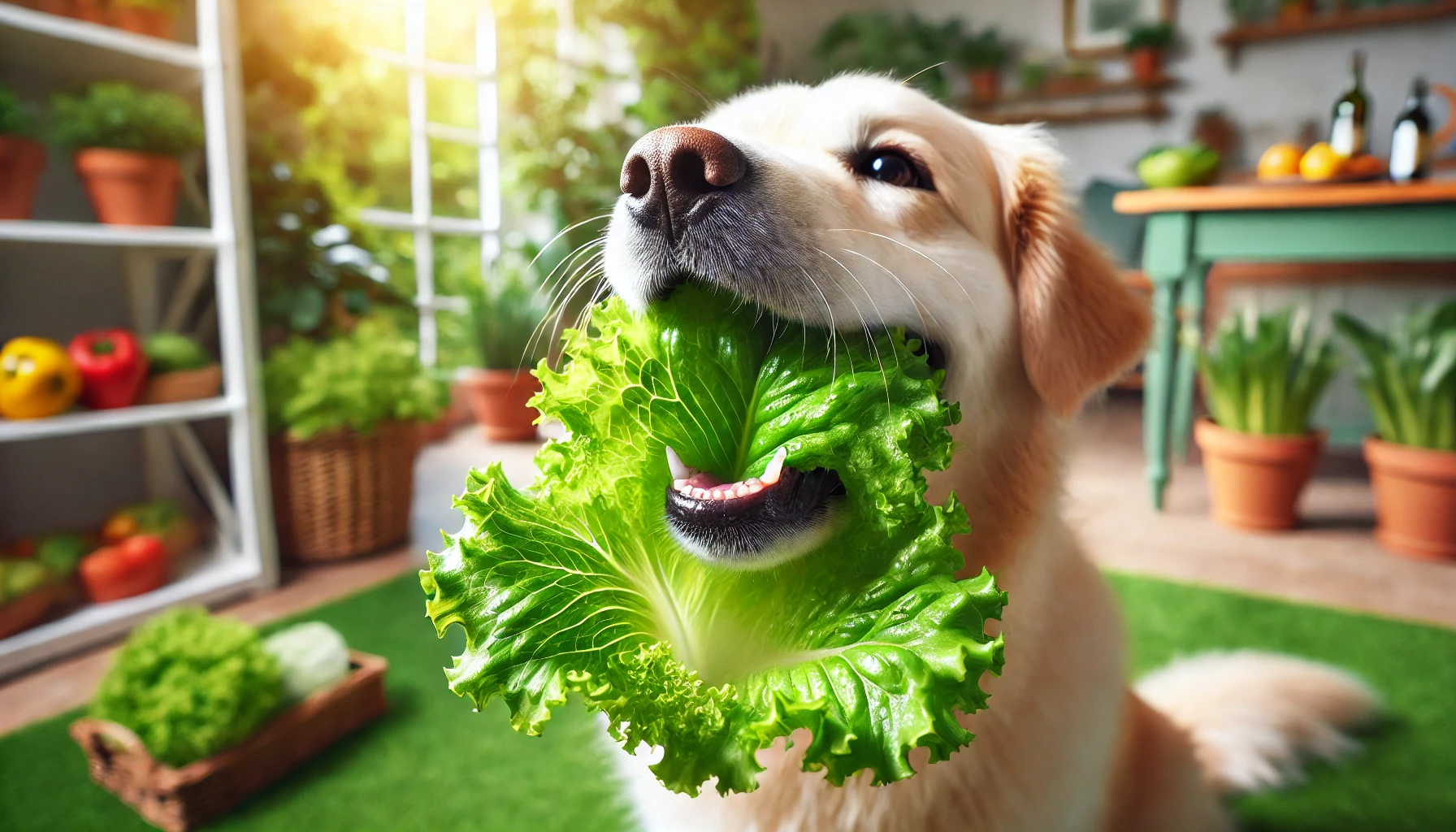
Can Dogs Eat Lettuce?YES!Dogs, like humans, require a balanced diet to maintain good health. While most of their nutrition comes from high-quality dog food, some pet owners choose to add healthy treats to their dog’s diet, such as fruits, vegetables, and other foods. One food that often comes up in discussions about dog-friendly snacks is lettuce. Lettuce is a common, low-calorie vegetable that is typically safe for dogs, but it’s essential to understand its nutritional value, possible risks, and how to serve it properly.
Is Lettuce Safe for Dogs?
Yes, lettuce is generally safe for dogs to eat in moderation. It’s a non-toxic vegetable that can be a refreshing and healthy treat for your dog. Dogs Eat Lettuce is packed with vitamins and minerals, and it’s low in calories, making it an attractive option for a crunchy snack. However, not all types of lettuce are equal, and there are a few precautions you should keep in mind when offering it to your dog.
Types of Lettuce Safe for Dogs
There are several types of lettuce, and not all of them are equally beneficial for dogs. Here’s a look at the most common types and their safety for canine consumption:
- Romaine Lettuce: Romaine lettuce is one of the safest and healthiest options for dogs. It is rich in fiber, vitamins A, C, and K, and is low in calories. Romaine is generally the best choice if you want to share lettuce with your dog.
- Iceberg Lettuce: Iceberg lettuce is another common type, but it contains very few nutrients compared to other types of lettuce. While it’s not toxic to dogs, it offers limited nutritional value and can cause digestive upset in some dogs if eaten in large quantities due to its high water content.
- Butterhead Lettuce: Butterhead lettuce, also known as butter lettuce or Boston lettuce, is a soft and mild variety of lettuce. It is safe for dogs and has some beneficial nutrients, though it’s not as nutrient-dense as romaine.
- Leaf Lettuce: Leaf lettuce, like red or green leaf varieties, is another healthy option for dogs. It is rich in vitamins and minerals and provides a good amount of fiber for digestive health.
Health Benefits of Lettuce for Dogs
Lettuce may not be a superfood, but it does offer some health benefits for your dog. Let’s break down the nutritional value and how it can contribute to your dog’s diet.
Low in Calories
Lettuce is low in calories, making it a great snack option for dogs who need to lose weight or maintain a healthy weight. Lettuce is a filling, crunchy snack that won’t contribute to unnecessary weight gain, as it contains almost no fat or sugar.
Rich in Fiber
Lettuce contains fiber, which is essential for a healthy digestive system. Fiber helps support regular bowel movements and can alleviate constipation in dogs. It also promotes gut health and can help manage certain digestive conditions, like diarrhea or irritable bowel syndrome.
Vitamins and Minerals
Lettuce provides several important vitamins and minerals that can support your dog’s overall health:
- Vitamin A: Vitamin A is essential for maintaining healthy skin, coat, and eyesight. It also supports the immune system.
- Vitamin C: Vitamin C is an antioxidant that supports a healthy immune system and helps combat inflammation.
- Vitamin K: Vitamin K plays a crucial role in blood clotting and bone health.
- Folate: Lettuce is a good source of folate, which is important for healthy cell division and the production of red blood cells.
Potential Risks of Lettuce for Dogs
While lettuce is generally safe for dogs, there are some potential risks to be aware of, especially if your dog consumes large amounts. It’s essential to understand these risks to ensure that your dog’s lettuce intake remains safe and beneficial.
Digestive Upset
If your dog eats too much lettuce, they may experience digestive upset, including gas, bloating, or diarrhea. This is especially true for dogs who are not accustomed to eating vegetables. Lettuce has high water content, and while this is generally not harmful in small quantities, it can lead to gastrointestinal issues if consumed in large amounts.
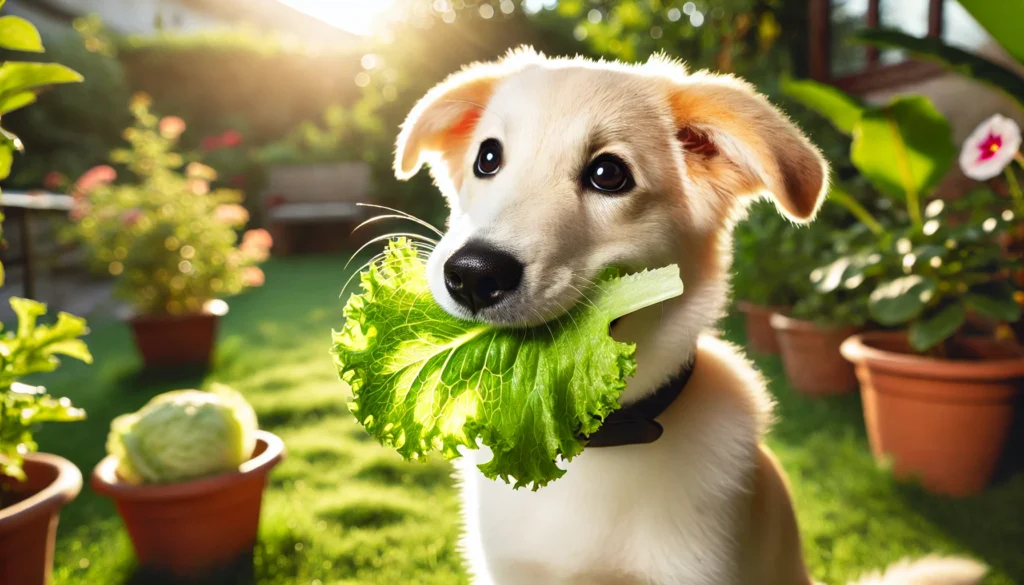
Choking Hazard
Dogs Eat Lettuce, especially the larger leaves, can be a choking hazard, particularly for small dogs or dogs who eat too quickly. It’s important to cut the lettuce into small, bite-sized pieces to reduce the risk of choking.
Possible Pesticide Exposure
If you’re feeding your dog store-bought Dogs Eat Lettuce, there’s a risk of pesticide residue on the leaves. It’s important to thoroughly wash the lettuce to remove any chemicals. Better yet, consider purchasing organic lettuce to minimize exposure to harmful pesticides and chemicals.
How to Serve Lettuce to Your Dog
Now that we know dogs eat lettuce is generally safe for dogs, it’s important to understand the proper way to serve it to ensure your dog gets the benefits without the risks.
1. Wash the Lettuce Thoroughly
Before serving lettuce to your dog, make sure to wash it thoroughly to remove any pesticides or chemicals. If possible, choose organic lettuce to reduce the risk of chemical exposure.
2. Cut the Lettuce into Small Pieces
Cut the lettuce into small, bite-sized pieces, especially if you have a small dog. This will prevent choking and make it easier for your dog to chew and digest. Avoid giving large, whole leaves that might be difficult for your dog to handle.
3. Serve Lettuce as a Treat, Not a Meal
Lettuce should be served as a treat and not as a primary food source for your dog. It’s not nutritionally complete enough to replace your dog’s regular food. Aim for small amounts to enhance your dog’s diet with some extra nutrients without overwhelming their system.
4. Watch for Any Allergic Reactions
While rare, some dogs may be allergic to certain types of lettuce or vegetables. After giving your dog lettuce for the first time, monitor them closely for any signs of allergies, such as itching, swelling, or digestive upset. If you notice any adverse reactions, stop feeding them lettuce and consult your veterinarian.
DO YOU KNOW
Squash is a term that refers to various vegetables within the gourd family, including zucchini, pumpkin, and butternut squash. These vegetables are rich in nutrients, making them a great addition to many human meals.
Alternatives to Lettuce for Dogs
While dogs eat lettuce is safe for dogs in moderation, there are several other vegetables and fruits that can provide additional health benefits. Here are some alternatives to consider:
Carrots
Carrots are a crunchy, healthy snack that is safe for dogs and rich in beta-carotene, fiber, and vitamins. They’re low in calories and can help improve dental health by naturally cleaning your dog’s teeth as they chew.
Cucumbers
Like dogs eat lettuce, cucumbers are low in calories and have a high water content. They are great for keeping your dog hydrated and can be an excellent alternative for a refreshing snack. Just make sure to remove the seeds, as they can be difficult for some dogs to digest.
Sweet Potatoes
Sweet potatoes are a great source of fiber, vitamins, and antioxidants. They are easy to cook and can be served mashed or in small, bite-sized pieces for your dog. Sweet potatoes are a good choice if you’re looking for a more nutrient-dense vegetable option.
Green Beans
Green beans are another healthy option for dogs. They are rich in fiber and low in calories, making them perfect for dogs on a diet or those with digestive issues. They can be served cooked or raw in small amounts.
Conclusion
In conclusion, lettuce is a safe and healthy snack for dogs when served in moderation and prepared properly. It provides essential vitamins, minerals, and fiber, making it a low-calorie treat that can benefit your dog’s health. However, it’s important to be mindful of the risks, such as digestive upset, choking hazards, and potential pesticide exposure. As with any new food, it’s essential to introduce lettuce gradually and observe your dog for any signs of allergies or digestive issues. By following proper serving guidelines and providing a balanced diet, you can ensure that your dog enjoys the benefits of lettuce while maintaining their overall health.
Is it safe for dogs to eat lettuce?
Yes, dogs eat lettuce safely in moderation. Lettuce is non-toxic and low in calories, making it a suitable snack for dogs. It’s also a source of fiber and certain vitamins, which can aid in digestion and contribute to overall health. However, it should only be given occasionally and in small amounts to avoid potential digestive upset. Overfeeding lettuce, particularly in large quantities, can lead to stomach discomfort or diarrhea, especially in dogs who are not used to eating vegetables. Always wash the lettuce thoroughly to remove any pesticides or chemicals, and chop it into small pieces to avoid choking hazards. If your dog shows any adverse reactions, discontinue feeding them lettuce and consult your vet.
Does lettuce settle a dog’s stomach?
Lettuce can sometimes help with mild digestive issues due to its high water content and fiber, but it is not a guaranteed remedy. Dogs eat lettuce as an occasional treat, and it may help hydrate your dog and provide some fiber for digestion. However, if your dog is experiencing an upset stomach, lettuce should not be considered a primary solution. Instead, it is better to consult with a veterinarian to determine the root cause of your dog’s stomach issues and receive appropriate treatment. Lettuce may offer mild relief for some dogs due to its cooling properties and gentle texture, but it’s essential to address any serious digestive problems through professional veterinary care.
Can dogs eat lettuce in the UK?
Yes, dogs eat lettuce safely in the UK, as lettuce is widely available and non-toxic to dogs. It can be a healthy snack for dogs, providing fiber and some beneficial vitamins. Whether in the UK or elsewhere, it’s important to serve lettuce in moderation and ensure it’s properly washed to remove any pesticides or harmful chemicals. While lettuce is a healthy choice, it should not replace your dog’s primary nutrition from a balanced dog food diet. Always remember to cut the lettuce into small pieces, especially for small dogs, to avoid choking risks. If you’re uncertain about feeding your dog lettuce, consulting with a vet can help ensure the snack is appropriate for their dietary needs.
Can dogs eat spinach or lettuce?
Yes, dogs eat lettuce and spinach, but both should be given in moderation. Lettuce is safe for dogs, but spinach contains oxalates, which in high amounts can interfere with calcium absorption and contribute to kidney issues over time. While small amounts of spinach may not cause harm and even offer some health benefits, such as fiber and vitamins, it’s important not to overfeed spinach to your dog. Dogs eat lettuce more safely as it’s lower in oxalates, but like any vegetable, it should be served in appropriate portions. Always introduce new foods gradually and monitor your dog for any adverse reactions like gastrointestinal discomfort or allergies.
Can dogs have lemons?
No, dogs should not have lemons. Lemons contain citric acid, which can cause digestive upset, irritation, or even toxicity in dogs if consumed in significant amounts. The high acidity can lead to symptoms such as drooling, vomiting, or diarrhea. Even though dogs eat lettuce safely, citrus fruits like lemons should be avoided due to their potentially harmful effects. If your dog accidentally eats a small piece of lemon, it is unlikely to cause serious harm, but it’s best to monitor them for any signs of distress. If symptoms persist or worsen, it’s important to contact a veterinarian promptly.
Is lettuce good for you?
Yes, lettuce is generally good for humans as it is low in calories, high in water content, and provides essential nutrients such as fiber, vitamins A and K, and antioxidants. While dogs eat lettuce for similar reasons—mainly as a low-calorie, hydrating snack—humans benefit from the nutrients in lettuce, especially for skin health and digestion. Lettuce can be added to salads, sandwiches, or eaten as a snack to boost your daily intake of vegetables. However, the nutritional content of lettuce can vary by type, with darker green varieties like romaine being more nutrient-dense than iceberg lettuce.
Can dogs have cucumbers?
Yes, dogs eat lettuce and cucumbers in moderation. Cucumbers are a safe, low-calorie vegetable for dogs and can be a healthy, hydrating snack, especially on hot days. They are rich in water and fiber, which can help with digestion and hydration. However, cucumbers should be cut into small pieces to prevent choking hazards, particularly for smaller dogs. Just like lettuce, cucumbers should be introduced gradually into your dog’s diet to ensure they do not cause any digestive upset. Avoid feeding your dog cucumber with added salt, seasoning, or sauces, as these can be harmful to dogs. When prepared properly, cucumbers are a healthy and refreshing treat for dogs.
Is iceberg lettuce safe to eat?
Yes, iceberg lettuce is safe for dogs to eat in small amounts, though it offers limited nutritional benefits compared to other types of lettuce, such as romaine. Iceberg lettuce has a high water content and is low in calories, but it lacks the vitamins and fiber that other lettuce varieties provide. While dogs eat lettuce of all kinds, iceberg lettuce should be fed occasionally as a treat rather than a regular part of their diet. It’s important to wash it thoroughly to remove any pesticides or chemicals and cut it into small pieces to avoid choking hazards. In general, romaine or leaf lettuce are better options due to their higher nutrient content.


